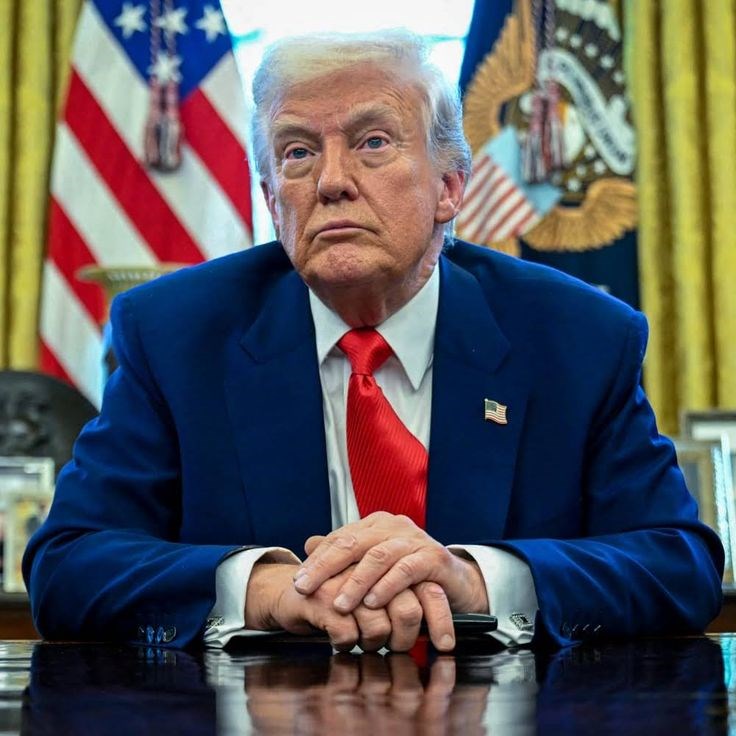
10-Jul-2025 , Updated on 7/10/2025 6:26:07 AM
Donald Trump’s America First Policy: Legacy or Liability?
Economic Nationalism's Mixed Results
Steel, aluminum and Chinese tariffs were meant to achieve economic nationalism that Donald Trump had established through the America First policy. These were to benefit the local industries and limit trading deficits. Short-term productivity and job increases took place in some sectors. Nevertheless, this cost manufacturers more in terms of input cost since this protection of materials, and retaliatory tariffs negatively affected downstream industries, exportation of agricultural products. The policy led to interruption of the supply chain and a rise in consumer price. The trade deficit with China shrank momentarily but the entire trade deficit of the U.S. vastly expanded. The latter only highlights the dilemma posed by protectionist goals and the dynamics of globalized supply chains and consumer prices.
Alliance Strain: Enduring Diplomatic Costs
The diplomatic cost that Trump paid through his America First policy was quite high and has long-term effects since this policy exhausted major alliances substantially. The strategy focused on setting unilateral demands instead of multilateral cooperation, which was apparent in withdrawal from the Paris Climate Accord and Iran Nuclear Deal and public criticism of allied countries in NATO and the imposition of national security taxes. These moves directly sabotaged 70-years of trust and common strategic purpose with Europe and Asia allies. Instability and the uncertainty they had to deal with the U.S. interfered with the long-term U.S. commitment, as alliances revaluated their dependence on American security assurances. Transactional aspects of the policy led to a legacy of lost trust and tension between the institutions of alliances such as NATO, making the task of rebuilding wholesome cooperation a long term problem.
Domestic Division: A Persistent Consequence
The America First agenda that has been used by Donald Trump in the country has literally made the society more detached coming up with a legacy of solidified division. The main principles of it suppressing immigration, nationalism, and aggressive trade relations with the world always internationalized the issues in a nationalistic way: us against them. This style appealed to one constituency and alienated serious population groups, polarizing politics increasingly by geography, education and culture. Rhetoric was used against minority groups and political rivalries and made divisive debates regular. The practice of the implementation of the mentioned policy put ideological conformity over national unity and created the intrinsic social divisions that are still a mark of the American political system.
Trade Realignment: Legacy or liability?
The policy of Donald Trump called America First essentially restructured the US trade policy. Domestic industry came first in aggressive tariffs and USMCA renegotiations, especially. Such a change questioned the multilateral conventions and caused re-numbered global supply chains. Advocates argue that the policy created a tradition of recovered production and enforced national interests. Opponents note several other detriments: punitive tariffs hurt exporters of agricultural goods, interfered with partnerships and raised the prices paid by consumers. The policy was proved to have transformed the dynamics of the trade. Then there is what, in the end, it will leave in net terms, a constructive legacy that supports resilience or a counter-productive burden that corrodes economic security and international relations. That, it seems to me, is what will preoccupy the scores of scholars working on this trade realignment as well as its reviewers.
Global Order Shifts: Lasting Impact
A major thrust of change on the global order was embraced under the America First policy that was formulated by Donald Trump. Its bilateralism openly attacked the accepted multilateral systems and coalitions, creating instability in NATO and starting trade wars. This position vividly diminished U.S. diplomatic position and provided strategic opportunities. More importantly, the policy emboldened its adversary countries, especially China and Russia, faster to the view of a world that is characterized as multipolar and the U.S. power is no longer unchallenged. The ultimate implication is the desaturation of transactional nationalism and increased reservations towards global collaboration. The legacy of the same is inevitably associated with the continual breakdown of the post-WWII international set-up.

Content Writer
Hi, I’m Meet Patel, a B.Com graduate and passionate content writer skilled in crafting engaging, impactful content for blogs, social media, and marketing.
Join Our Newsletter
Subscribe to our newsletter to receive emails about new views posts, releases and updates.
Copyright 2010 - 2026 MindStick Software Pvt. Ltd. All Rights Reserved Privacy Policy | Terms & Conditions | Cookie Policy